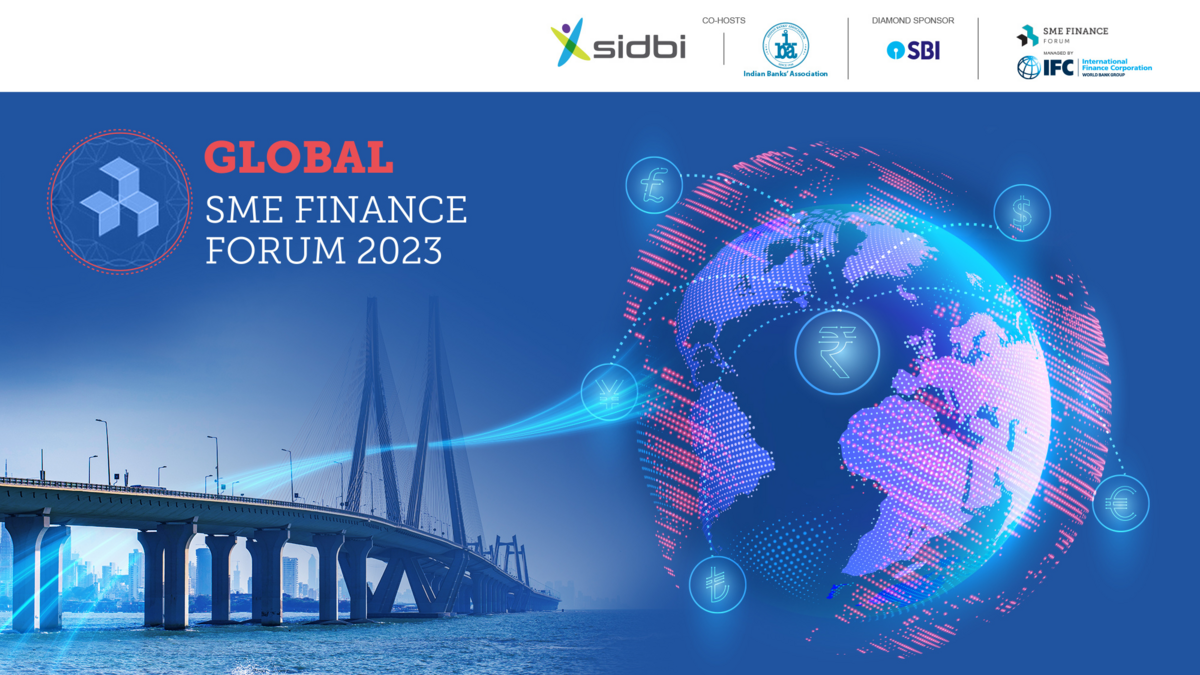Blog
The Concrete Actions to Greening Finance at the SME Level

The United Nations High-level Political Forum on Sustainable Development (HLPF) was held from Tuesday, 6 July, to Thursday, 15 July 2021, including a three-day ministerial meeting and the theme was "Sustainable and resilient recovery from the COVID-19 pandemic”. This High-Level event further builds on the outcomes of the joint side event organized by UNDP, ILO, UNCTAD and DESA, focused this year on the role of business and the financial sector in financing a sustainable and resilient recovery from COVID-19.
I had the honor to participate in this event -together with private sector and government representatives among others, representing the SME Finance Forum, a G20-created structure representing a growing association of finance industry players from around the world -now with more than 230 institutions, who are united in their desire to improve access to finance for small and medium enterprises.
SMEs represent a substantial amount of employment, worldwide, and therefore, I think it goes without saying that we need to really keep them in mind, as we consider how the private sector should be involved in financing the Sustainable Development Goals (SDGs).
Perhaps, it’s less well understood that the poorer the country, the greater the share of employment that SMEs occupy. It's also true that SMEs are usually the provider of essential goods and services for many of the world's people, in both rich and poor countries, as well the source of key innovation in many areas.
At the same time, SMEs are always hard hit by crises and COVID is no exception. We are seeing that COVID has struck, more broadly and more widely, the SME community than any other crisis in my lifetime. At the same time, SMEs always show great resiliency in crises, as we are already seeing SMEs’ ability to adapt and adjust. One of the key aspects of helping them do this -and continue to provide employment opportunities and essential goods and services, is to make sure that SMEs have access to the financing they need to make the adjustments and the changes to seize on new opportunities.
Unfortunately, this was always a problem, even before COVID, and the one irony is that maybe COVID is raising awareness of how we might be able to do to address this challenge!
The biggest challenge always faced when financing SMEs has been surmounting what economists call the “asymmetric information barrier”, what in plain terms means that in order to make responsible risk management decisions in financing firms we need to have enough knowledge in real time about the status and potential of their businesses. This is a key issue that has always been impossible for SMEs. Why? Because the only way to have access to that information was by physically going out and literally checking in the field what's going on for most SMEs.
Why don’t SMEs get the finance they need? A reason is because they usually can’t provide information that bankers and other financiers need from their customer and sales records to enable responsible risk management decisions. Most of that information, in the past, was tied up in paper, in cash, or in the entrepreneurs’ heads.
However, COVID has moved many SMEs away from mostly physical interaction with their customers, with their suppliers, and with their buyers, accelerating digital alternative pathways for doing business. This creates a unique opportunity to capitalize if we combine building private sector awareness about new digital ways of assessing SMEs with government investment to create infrastructure to accelerate these digital trends and make them as inclusive as possible.
In this sense, we have to pay special attention not to cause new digital divides, not just country level divides, but divides between women entrepreneurs and male entrepreneurs, between young entrepreneurs who might have less business track record than others, and to entrepreneurs from disadvantaged groups. The question is how we can develop these infrastructures financially sustainable.
By doing that, we can find ways to foster smaller ticket transactions at scale and affordably. At the end of the day, we need the private sector to be a major player, because this cannot be done by governments alone.
Finally, in my view, there are also ways to contribute to the SDGs. While there's been a lot of attention to green finance and improving social performance, it is centered on big ticket relationships. No individual small business is causing a major problem with respect to the SDGs by itself, nor is any small business achieving SDGs by itself. However, if we consider the hundreds of millions of small businesses around the world together, suddenly we could put in perspective the important dimensions of these challenges and therefore, the important opportunities for the future.
If we can find ways to green finance at the SME level, as well as at the big-ticket level, with these new digital technologies combining the internet of finance (especially e-commerce), and E-trade with the Internet of Things, using new technologies like blockchain to have traceability and accountability, this is where we can find a real unique opportunity - opportunity to not only help in the classic goals that we associate with small firms like employment, and gender, but also to move forward in climate change mitigation, in labor relations, in pollution control, and in many other areas.
**
To learn more about greening SME Finance, we invite you to participate in our next 2021 Global SME Finance Forum, virtual edition. This year’s event, the annual flagship conference of the SME Finance Forum, will focus not only on the importance of greening SME finance but also on its role in promoting a more resilient and sustainable future for SMEs post COVID-19. Learn more here>
Other articles on the subject
How to Finance Sustainable Supply Chain - Member Spotlight #3 with RootAnt
Webinar sólo para miembros - Financiamiento Verde en Latinoamérica: Oportunidades de Negocio y Retos para la Banca (Spanish content)








